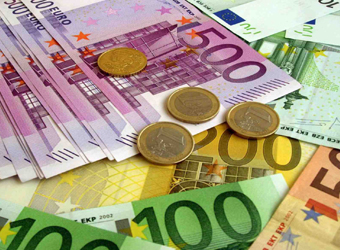The euro steadied on Tuesday, having bounced from a near 21-month low set the previous day after Italian Prime Minister Matteo Renzi’s loss in a referendum over constitutional reform, an outcome that traders had widely expected.
Renzi announced on Monday that he would resign after the resounding defeat in the referendum.
Still, while Renzi’s resignation could open the door to an early election next year and the possibility of the anti-euro 5-Star Movement gaining power, many investors and analysts think it more likely that a caretaker government will be put in place until an election in 2018.
The euro eased 0.1 percent to $1.0757. On Monday, it ended up gaining 1 percent on the day, having bounced from a low of $1.0505 set in Monday’s early Asian trade.
Analysts said the euro was buoyed by relief over the lack of any immediate sign Italy would head toward an early election after Renzi’s resignation.
However, they warned that the euro’s outlook remains clouded by worries over political risks in Europe, with elections coming in the Netherlands, France and Germany next year.
“The euro has bounced due to a short-squeeze, but this doesn’t mean that it has entered a rising trend,” said Masashi Murata, currency strategist for Brown Brothers Harriman in Tokyo.
“I think it’s reasonable to stay with the view that it will eventually head lower, to levels below $1.05,” Murata added.
In the near-term, the euro could be supported by investor caution ahead of the European Central Bank’s policy meeting on Thursday, analysts said.
While the ECB is seen likely to announce an extension of its quantitative easing (QE) program, one uncertainty is whether it will send any signals about a possible tapering of its asset purchases, said Sim Moh Siong, FX strategist for Bank of Singapore.
“If they do signal a tapering, then perhaps that would cancel out the impact of extending the QE,” Sim said, adding that market participants may be reluctant to make bearish bets against the euro now because of this risk.
At the Dec. 8 meeting, the ECB is expected to extend its QE program by six months and keep the size of monthly asset purchases unchanged, according to a majority of economists polled by Reuters.
The dollar was little changed against a basket of six major currencies at 100.16 not far from Monday’s low of 99.849, its lowest level since Nov. 15.
In late November, the dollar index had set a 13-1/2 year high of 102.05, having rallied as U.S. bond yields surged on expectations of higher fiscal spending and a faster pace of Federal Reserve monetary tightening under President-elect Donald Trump.
“The market seems to be hoping for the best, and I think some of these expectations need to be validated before we see further dollar strength,” said Bank of Singapore’s Sim, referring to the hopes for increased U.S. fiscal stimulus.
Against the yen, the dollar held steady at 113.79.
The Australian dollar was weighed down after the Reserve Bank of Australia kept interest rates unchanged but sounded cautious on economic growth.
The Aussie was last down 0.2 percent on the day at $0.7460.
Source: Reuters


